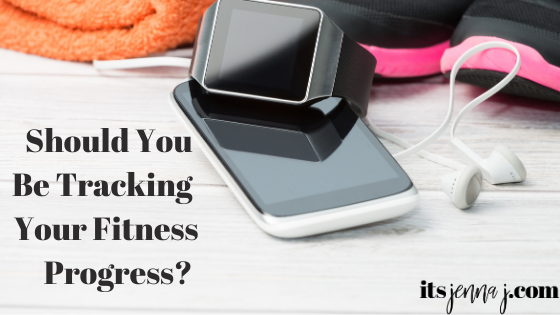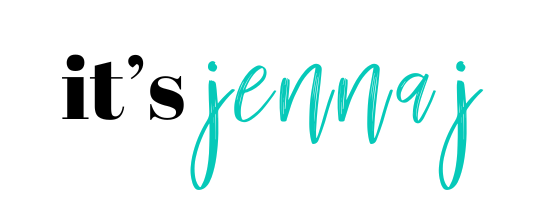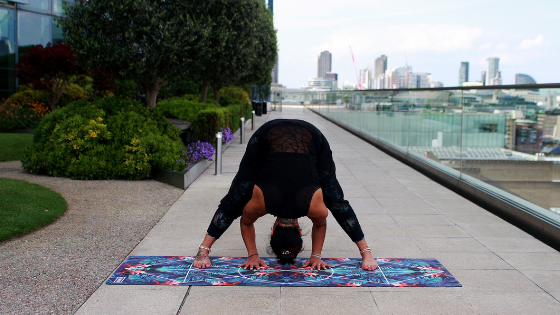Should You Be Tracking Your Fitness Progress?
There are lots of different ways to track your fitness progress. Ones that go beyond the number on the scale or your clothing size. A few that come to mind are: learning new skills or improving your form. Getting stronger or faster. Improving your balance or endurance. Increasing mobility or flexibility. Figuring out how to listen to your body and knowing when to push yourself and when to rest. But the more important question is this:
Do you even need to be tracking your fitness progress at all?
As with anything, my answer here is “it depends”. When I was all wrapped up in diet culture, I used to track everything. Or more specifically, calories in and calories out, my weight, and my measurements, because those were the only things that mattered much to me. Once I gave all that up, I swung hard in the other direction. Fitbits and Apple watches were evil. No more MyFitnessPal. Absolutely NO SCALES. I started strength training, but just for fun, and couldn’t be bothered with how much I was lifting. In fact, I can remember a former Crossfit coach asking me what my goals were and I responded with:
“Ummm IDK. To feel like a badass for the next hour?”
This is all well and good. In fact, I think it’s a necessary step in the process of repairing a bad relationship with exercise. AND there are also some instances where keeping track of certain things might be helpful.
It depends on you, your goals and intentions, and how far you’ve come in how you view exercise, food, & your body.
When it comes to fitness, it’s less about what you’re doing, and more about the “why” behind it. This is something that comes up often with my clients, especially those following one of my online programs like Tough Love Strength Club or DIY. It’s the question of “How do I use this program?”
While I’m a big fan of following a strength training program, there are different ways to approach it.
Other questions I often get from my clients:
“Do I have to do all the workouts in order or can I pick and choose the ones that seem the most enjoyable to me each day?”
It depends.
“What happens if I miss a day?”
It’s probably not a big deal.
“Do I need to enter my results or how much I lifted into the workout app?“
That’s what this entire blog post is about. 😉
So keep reading. Because when it comes to tracking fitness related things, there are a few questions you might wanna ask yourself.

Are you assigning a meaning to the numbers? Or can you honestly see them as neutral data?
This is gonna involve a tough love conversation between you and yourself. When it comes to any kind of number: the one on the scale, the one on the tag in your pants, the one printed on your kettlebell, or the one flashing on your watch, what do you make of it? Are you making it mean something about you as a person? Does knowing it cause you to have an emotional reaction? If so, you might wanna do some more work around your relationship with exercise and your body before you consider tracking your fitness progress in any way. If you can see it as neutral info and move on with your day, it’s probably an ok number for you to know.
Does knowing the info you’re tracking trigger old disordered thoughts and behaviors?
If it does you’ll probably wanna skip it for now. Especially if you’re in recovery or even think you’re “recovered” from an eating disorder. Scale weight is a big one for a lot of people. But other numbers like steps, calories burned, or even previous personal records can be triggering for some people. Know yourself and where you’re at in your journey before you try to track any kind of fitness progress.
Do you need the data dictate your choices around exercise, or are you able to trust your body to know what’s best for you?
What do you do with the numbers once you know them? Are you still able to trust and honor your body to back off if you’re feeling tired or sore? Or do you feel the need to push through and do all of the things because your watch told you to? Remember that measuring tools are just that–a tool. You are always the expert on your own body.
Are you looking to train? Or move your body?
There’s a difference. And while neither is necessarily better than the other, both serve different purposes. When we hear of “joyful movement”, we’re often told that it means things like taking walks and gentle yoga. In truth, it can be whatever you want it to be, but with the intention of moving for enjoyment’s sake. Things you do just for fun probably don’t need quantifying. But if you’re into strength training for fun (I think it’s fun!) you might want to at least pay some attention to the muscle groups you’re working so that nothing gets overworked or neglected. Though a good program or trainer can help you with that too.
Are you training with a specific goal in mind?
I always tell my clients this: you’re welcome to approach it however you want. You never have to do exercises you don’t feel like doing if you don’t want to. You’re more than welcome to skip reps or sets if you’re over it. But if you do, you’re also not allowed to get mad if you’re not getting any stronger. To do that, you’ll want to be progressively adding load, volume, and intensity over time. Which means being specific about how much you’re lifting, what exercises you’re doing, etc. If you decide you want to work towards a specific goal, some tracking may be necessary to help you get there.
Have you considered what you might be missing out on by focusing on one specific measure?
Certain things can’t be quantified. And if you get too carried away with focusing on one specific aspect of your fitness progress, you’ll inevitably miss out on other stuff. For example, if you get too obsessed with your step count, you might never bother strength training. If you’re too preoccupied with how heavy you’re lifting you might not stop to think about other important things like your mobility or balance or even what you’re feeling in your body.
What else needs to be occupying your time brain space?
Tracking your workouts takes valuable time and brain space. If you’re training for an athletic event or prioritizing a goal, then it might be a worthy use of your time and mental energy. However, your workout still “counts” even if you didn’t track it. So if you just wanna do the thing without paying too much attention to the numbers, that’s totally fine!
As I mentioned before, my opinions on tracking your fitness progress have evolved over the years, and yours probably will too!
It’s less about what you’re doing and more about why. Get curious about your need to track things and pay attention to how it makes you feel. As you improve your relationship with exercise and your goals evolve you can always revisit this question. You might find that some types of tracking feel more neutral while others may never be for you. Bottom line–you get to decide!








One Comment
Comments are closed.